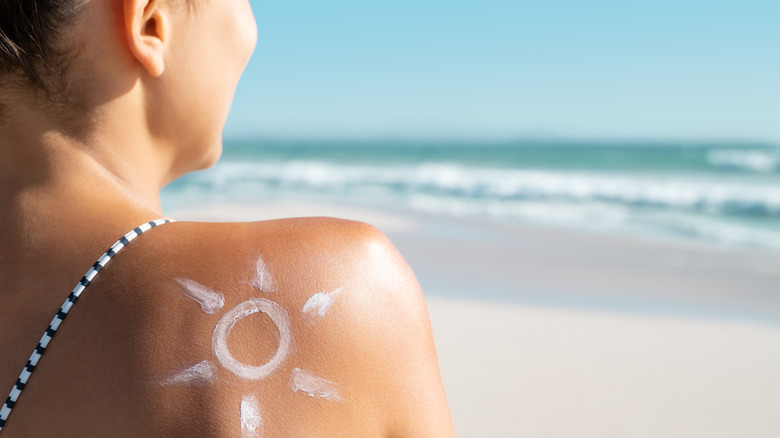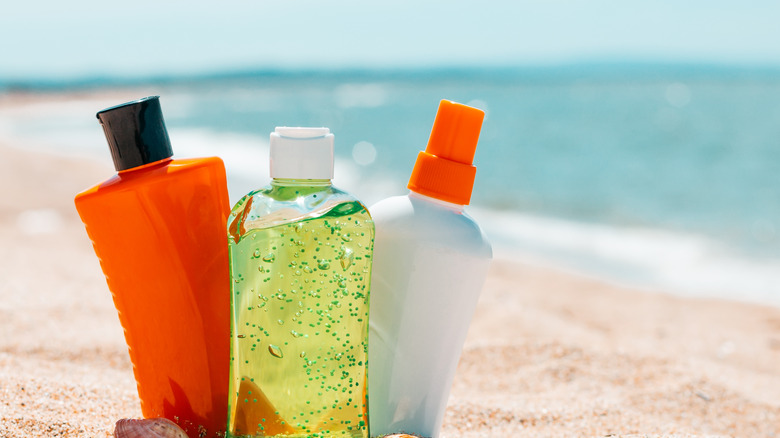What Sunscreen Ingredients Are Harmful To The Ocean?
Sunscreen is a must in the middle of summer when the strong UV rays bare down on your skin. When spending a day at the beach, you don't want to end up looking like one of the ocean's lobsters when night time comes. Plus, scientists now know that UV rays can cause skin problems, including premature aging and skin cancer (via MedicinePlus). So, you load up on the sunscreen as soon as you hit the sand, but can your sunscreen hurt the ocean?
Applying sunscreen at the beach is the best way to protect your skin from the sun. Cancer.Net recommends using a sunscreen with an SPF of at least 30 and reapplying it every two hours while you're outside. Even if it's cloudy, those UV rays get through, so it's important to always apply sunscreen when you'll be at the beach, no matter the weather. But it's also important to watch what ingredients and chemicals are in your sunscreen when you want to cool off and take a dip.
Protect the coral reefs by using the right kind of sunscreen
Although coral reefs take up a small portion of the ocean, they are essential in keeping ocean life alive and the food chain going. A quarter of all ocean life relies on coral reefs for nutrition, as well as a place to seek shelter, according to Live Science. That means it's essential to protect the coral reefs, so read your sunscreen ingredients before buying.
Avoid sunscreens with oxybenzone, as advised by National Geographic. You should also avoid any sunscreens with what are known as nano-particles, as they are so small coral can ingest them. While oxybenzone tops the lists of ingredients to avoid, there is a host of others you don't want to see when reading a sunscreen ingredients label. They include octinoxate, octocrylene, homosalate, PABA, 4-methylbenzylidene camphor, parabens, triclosan, and types of microplastics like exfoliating beads (via Save The Reef). Instead, choose sunscreens that have zinc oxide or titanium dioxide.
So, while you definitely don't want to avoid sunscreen for the sake of your own health, always make sure to read the sunscreen label for the sake of the ocean's health.

